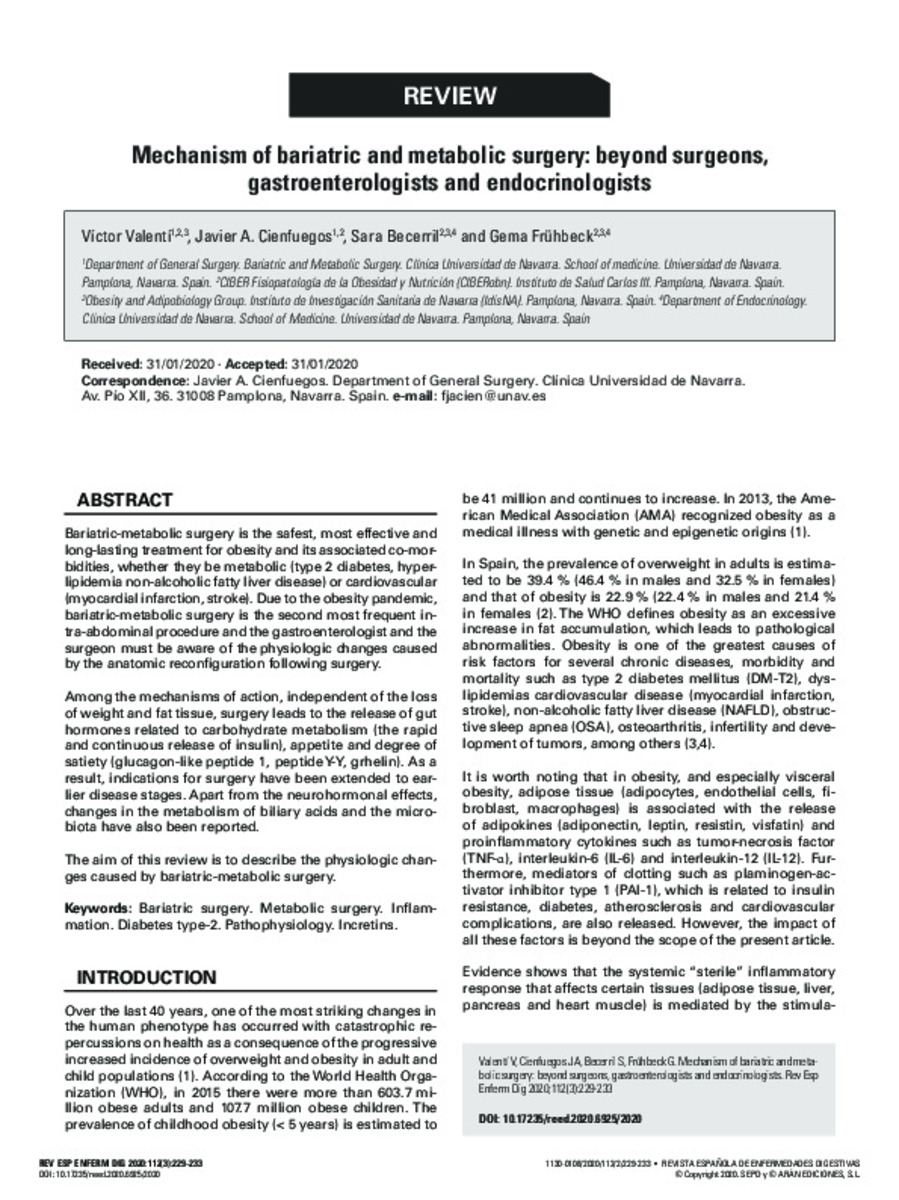Mechanism of bariatric and metabolic surgery: beyond surgeons, gastroenterologists and endocrinologists
Palabras clave :
Bariatric surgery
Metabolic surgery
Inflammation
Diabetes type-2
Pathophysiology
Incretins
Fecha de publicación :
2020
Cita:
Valentí-Azcárate, V. (Víctor); Álvarez-Cienfuegos-Suárez, F. (Francisco Javier); Becerril-Mañas, S. (Sara); et al. "Mechanism of bariatric and metabolic surgery: beyond surgeons, gastroenterologists and endocrinologists". Revista Española de Enfermedades Digestivas. 112 (3), 2020, 229 - 233
Aparece en las colecciones:
Estadísticas e impacto
0 citas en

0 citas en

Los ítems de Dadun están protegidos por copyright, con todos los derechos reservados, a menos que se indique lo contrario.







